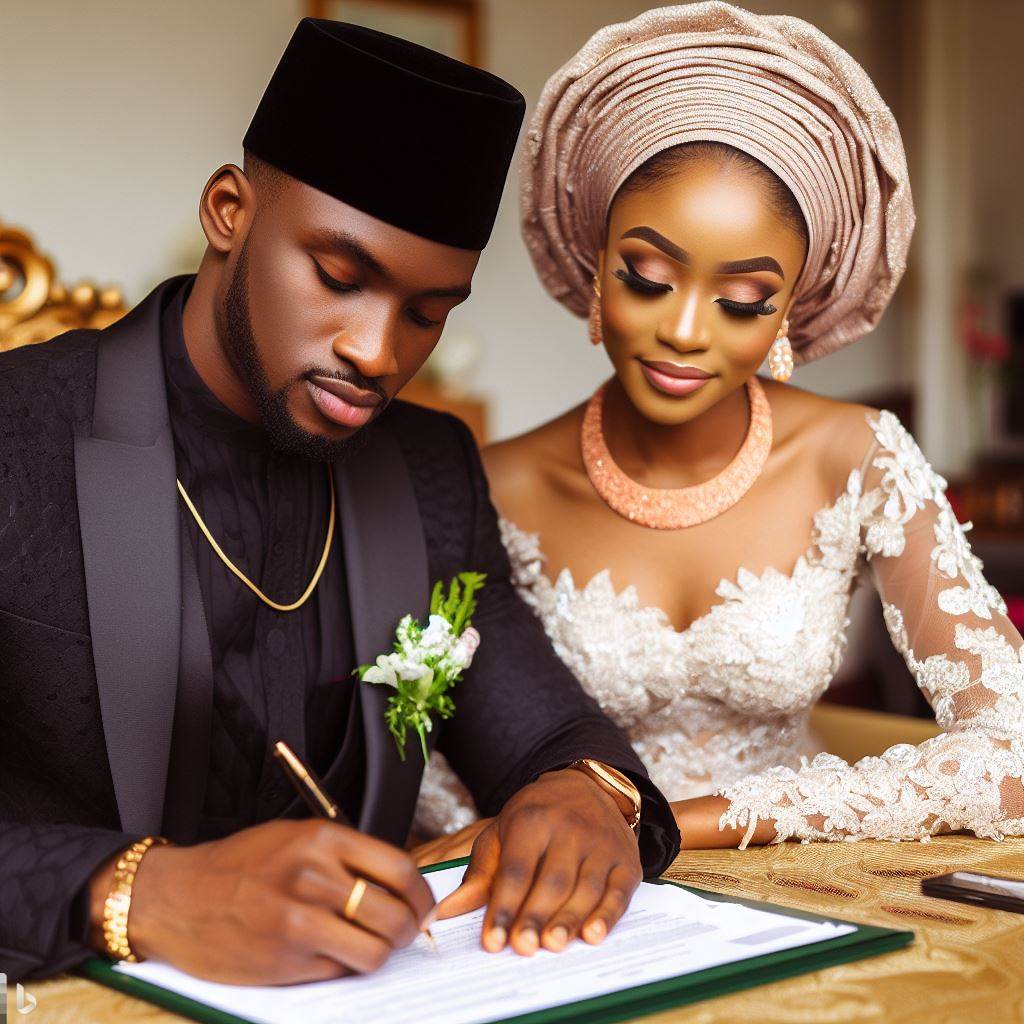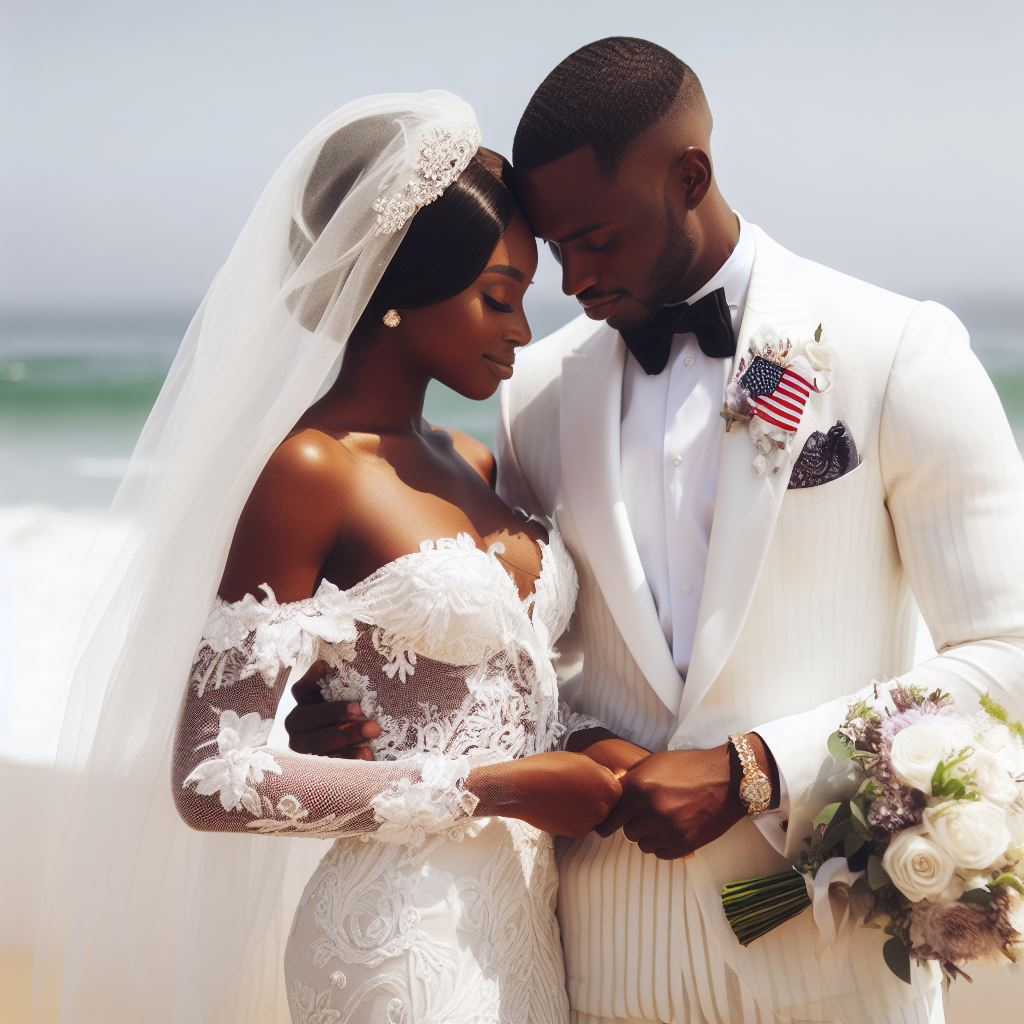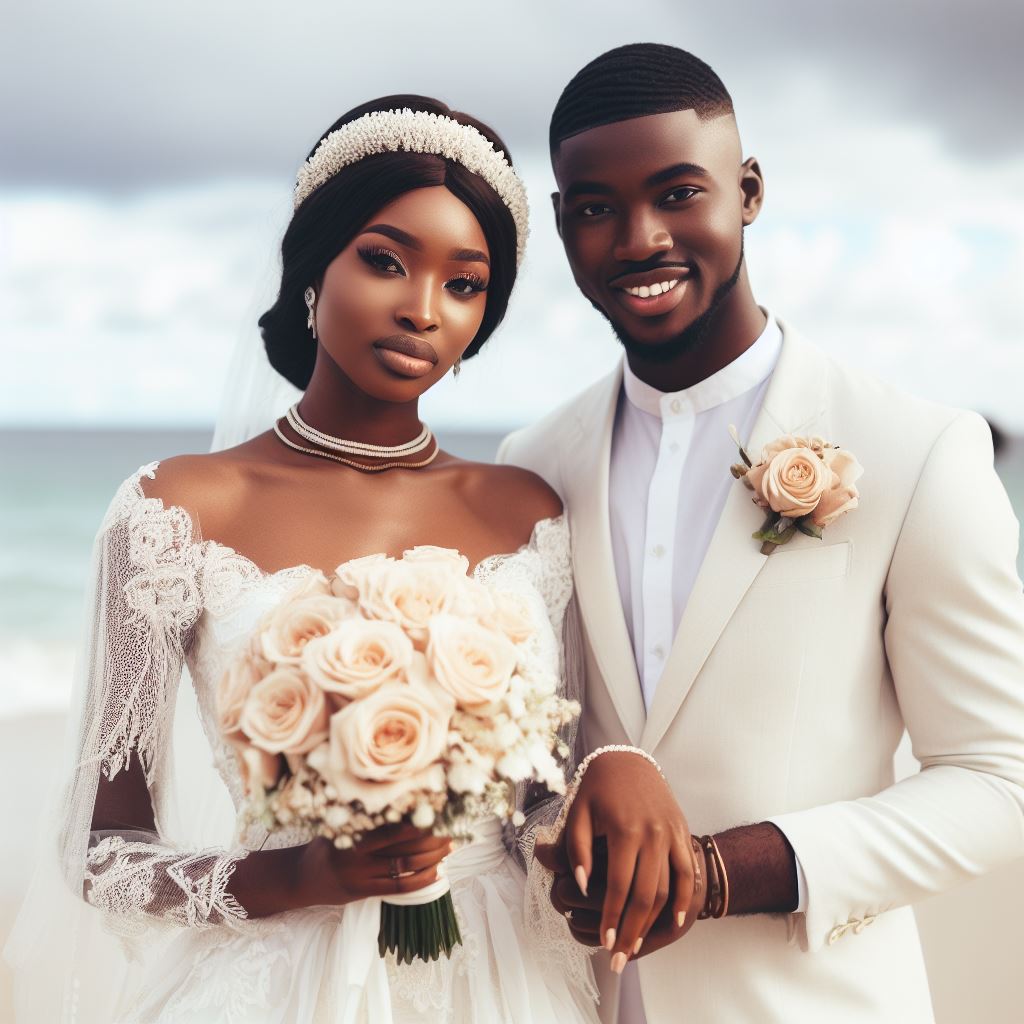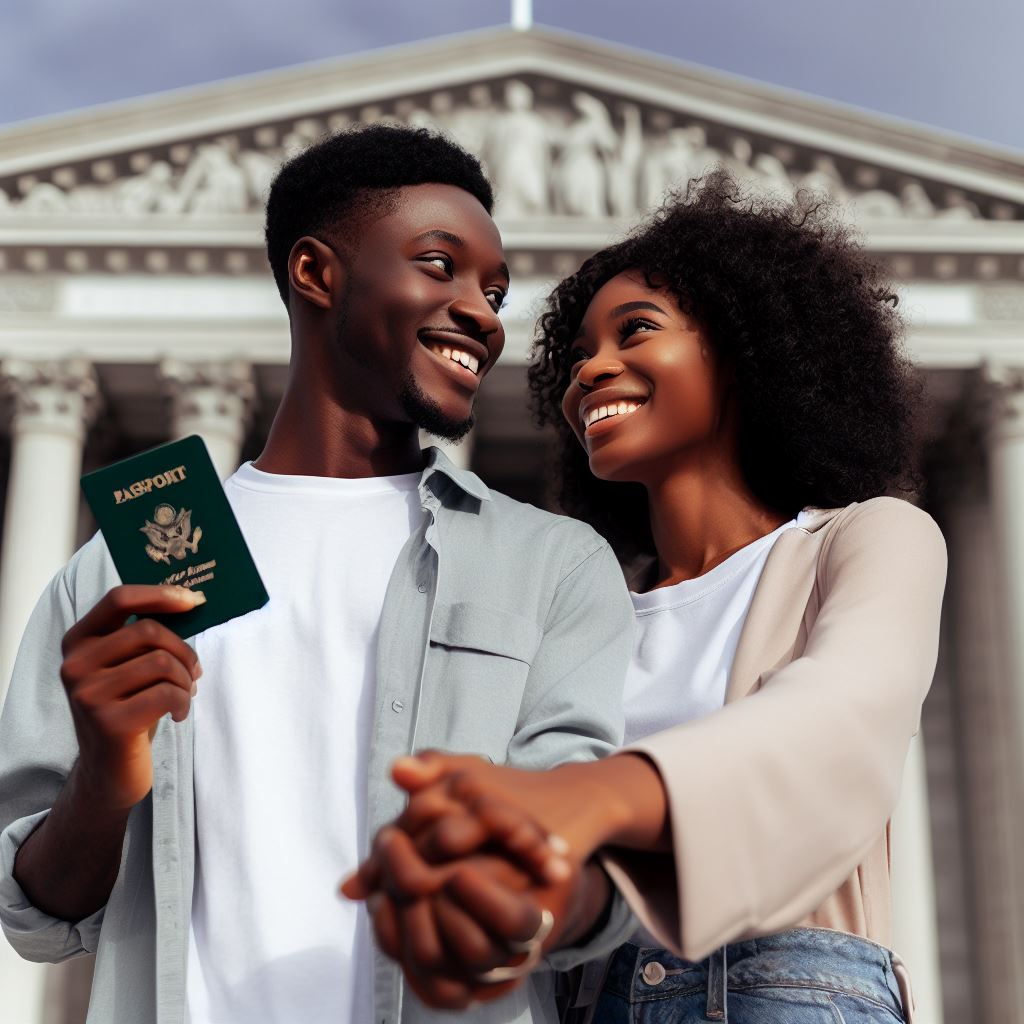Introduction
A. Tying the Knot: US vs. Nigerian Ceremonies
Embarking on the journey of marriage unveils cultural nuances, notably contrasting between the United States and Nigeria.
B. Engaging Fact
Did you know that while Americans often opt for elaborate destination weddings, Nigerians celebrate unions with vibrant traditional ceremonies?
In the upcoming sections, we’ll unravel the distinctive facets of both cultures when it comes to tying the knot.
Explore the diverse rituals, customs, and sentiments that make these ceremonies rich expressions of love and tradition.
1. US Ceremonies
- Emphasis on personalization.
- Varied venues, from beaches to vineyards.
- Exchange of vows often a focal point.
2. Nigerian Ceremonies
- Colorful attire reflecting cultural heritage.
- Elaborate traditional rites and ceremonies.
- Community involvement and celebration.
Join us on this cultural exploration, discovering how the threads of matrimony are woven uniquely in these two captivating worlds.
Background on Nigerian Marriage Ceremonies
A. Traditional Nigerian marriage ceremonies and their significance
- Nigerian marriage ceremonies are rich in tradition and cultural significance. They serve as a reflection of the values and beliefs held by different ethnic groups in the country.
- These ceremonies are not just a union between two individuals, but also a joining of families and communities.
- In traditional Nigerian weddings, the couple follows specific customs and rituals that have been passed down through generations.
- These traditions vary across ethnic groups, but they share common elements such as the payment of dowry, traditional attire, and elaborate ceremonies.
- One significant aspect of Nigerian marriage ceremonies is the engagement, also known as the “Introduction Ceremony.”
- This event marks the formal introduction of the couple to their families and the community.
- It is a way of officially announcing the intention to marry and seeking the blessings of elders and loved ones.
- The engagement ceremony is followed by the dowry payment, which is an important part of Nigerian weddings.
- The groom’s family presents gifts, usually in the form of money, to the bride’s family as a show of appreciation and commitment.
- The dowry also symbolizes the groom’s ability to provide for his future wife.
- Another essential element of Nigerian marriage ceremonies is the wedding rituals. These rituals often involve traditional dances, music, and cultural performances.
- They add vibrancy and excitement to the celebrations, creating a festive atmosphere for all attendees.
B. Cultural and religious influences on Nigerian weddings
- Nigerian weddings are deeply influenced by the diverse cultures and religions present in the country.
- Nigeria is a multicultural society, consisting of more than 250 ethnic groups, each with its unique traditions and customs.
- The cultural influences on Nigerian weddings are evident in the attire worn by the bride and groom.
- Depending on their ethnic background, couples may choose to wear traditional clothing such as the Yoruba “aso-oke” or the Igbo “gele.”
- These outfits are beautifully designed with intricate patterns and colors, reflecting the cultural heritage of the couple.
- Religion also plays a significant role in Nigerian weddings. The country is divided between Christianity, Islam, and indigenous African religions.
- Couples often incorporate religious ceremonies and practices into their weddings, seeking blessings from their respective faiths.
- For Christian weddings, the ceremony is typically held in a church and officiated by a pastor. The couple exchanges vows, rings, and receives blessings from the congregation.
- In Muslim weddings, the ceremony takes place in a mosque, and the couple participates in Islamic rituals, including the signing of the marriage contract and the reading of Quranic verses.
C. Key elements of Nigerian ceremonies
- The engagement ceremony marks the beginning of Nigerian wedding festivities.
- It is a formal introduction of the couple to their families and the community, with the exchange of gifts and blessings. This event sets the tone for the rest of the wedding preparations.
- The dowry payment is a prominent feature of Nigerian weddings. The groom’s family presents gifts and money to the bride’s family as a token of appreciation and commitment.
- The dowry symbolizes the groom’s ability to provide for his future wife and showcases the families’ mutual respect.
- Nigerian wedding rituals are diverse and reflect the traditions of different ethnic groups.
- These rituals include traditional dances, cultural performances, and music specific to each ethnic group.
- Guests are encouraged to dress in traditional attire, adding to the colorful and vibrant atmosphere.
- Food also holds great importance in Nigerian wedding ceremonies. Traditional Nigerian dishes, such as jollof rice, pounded yam, and egusi soup, are served to guests.
- These delicacies highlight the culinary heritage of the couple and provide a taste of Nigerian cuisine to attendees.
In general, Nigerian marriage ceremonies are steeped in tradition, cultural significance, and religious observances.
Engagements, dowry payments, and wedding rituals are key elements of these ceremonies, showcasing the rich diversity of Nigerian culture.
These weddings serve not only as a celebration of love but also as a way to honor family, community, and heritage.
Read: The Role of Witnesses in US Marriages: What Nigerians Should Know
Overview of US Marriage Ceremonies
A. Traditional US Wedding Ceremonies
A traditional US wedding ceremony typically follows a certain format and includes specific elements.
- There is usually an officiant, such as a priest, minister, or justice of the peace, who conducts the ceremony.
- The bride is escorted down the aisle by her father or another significant male figure in her life.
- Exchange of vows and rings between the couple is a common practice.
- The officiant pronounces the couple as husband and wife.
- Following the pronouncement, the couple shares their first kiss as a married couple.
- Finally, there is often a recessional, where the newly married couple walks back up the aisle together.
B. Customs and Rituals in American Weddings
American weddings are known for their diverse customs and rituals that add a unique touch to each ceremony.
- The bride typically wears a white wedding dress symbolizing purity and innocence.
- Exchange of wedding vows is an essential part of every American wedding.
- The bride and groom often have bridesmaids and groomsmen who stand with them throughout the ceremony.
- The cutting of the wedding cake and sharing it with the guests is a common ritual.
- The couple may choose to have a first dance and invite their guests to join in the celebration.
- Throwing of rice or birdseed at the couple as they leave the ceremony is an old tradition.
C. Cultural and Religious Diversity in US Marriages
The United States is a melting pot of cultures and religions, which is reflected in its marriage ceremonies.
- Religious ceremonies vary depending on the couple’s faith, such as Christian, Jewish, Muslim, Hindu, or Buddhist.
- Many couples incorporate cultural elements into their wedding, such as traditional attire or rituals.
- Interfaith marriages where the couple belongs to different religions are becoming more common in the US.
- Same-sex marriages are legally recognized in the US since the Supreme Court ruling in 2015.
- Destination weddings are also popular, where couples travel to picturesque locations to tie the knot.
In summary, US marriage ceremonies follow a traditional format with specific elements.
However, they also embrace cultural and religious diversity, allowing couples to incorporate their own customs and rituals.
American weddings are a celebration of love and unity, representing the unique blend of traditions that make up the country’s rich cultural tapestry.
Read: The Cost of Getting a Marriage Certificate in the USA
Differences in Pre-Wedding Preparations
A. Nigerian Pre-Wedding Preparations
- In Nigerian ceremonies, traditional attire selection plays a significant role, reflecting cultural heritage.
- Preparation rituals involve the bride’s family gathering items for the groom’s family as symbols of respect.
- The bride’s family may engage in a series of rituals and ceremonies to bless and prepare her for marriage.
- A traditional engagement ceremony called “Introduction” takes place, where families exchange gifts and make formal introductions.
- Nigerian couples may undergo traditional counseling sessions to prepare for the challenges of married life.
- Community involvement is highly valued, with neighbors, friends, and extended family members stepping in to help with preparations.
- The entire village or community takes part in organizing the ceremony, contributing to the celebratory atmosphere.
- Nigerian weddings often involve multiple events, lasting for days, filled with music, dancing, and cultural performances.
B. Role of Family and Community in Nigerian Ceremonies
- Family is central to Nigerian weddings, with parents heavily involved in the planning and execution of the event.
- The extended family is also actively involved, providing support, resources, and financial contributions.
- Family and community play a significant role in decision-making processes, ensuring the couple’s union aligns with social and cultural norms.
- The involvement of relatives fosters a sense of unity and commitment, strengthening family bonds and networks.
- Nigerian weddings are seen as communal celebrations, bringing people together to celebrate love and togetherness.
C. Traditional Customs and Ceremonies in Nigerian Weddings
- Nigerian weddings place a strong emphasis on upholding and celebrating traditional customs and practices.
- Traditional ceremonies, such as the engagement ceremony, showcasing cultural traditions, are vital events in the wedding process.
- Several rituals, such as the breaking of kola nuts and pouring of libations, honor ancestors and seek their blessings.
- Traditional dances, music, and attire add vibrancy and a sense of cultural identity to Nigerian weddings.
- In contrast to the US, Nigerian weddings tend to prioritize cultural customs over individual preferences.
- However, modern Nigerian couples also blend traditional customs with more personalized approaches, creating a unique fusion.
- With the influence of Western culture, Nigerian weddings now incorporate elements like white gowns and exchanging of rings.
- This blend of tradition and modernity showcases the adaptability and evolution of Nigerian wedding ceremonies.
To summarize, Nigerian wedding preparations differ from their counterparts in the US in several ways.
In Nigeria, pre-wedding preparations encompass traditional attire selection, preparation rituals, and the role of family and community.
Nigerian weddings value cultural heritage, community involvement, and the preservation of traditions.
In contrast, US weddings tend to focus on individual preferences and personalization.
Understanding these differences allows for a deeper appreciation of the cultural diversity and unique approaches to celebrating love and union.
Read: US Marriage Certificate: How it Impacts Immigration Status
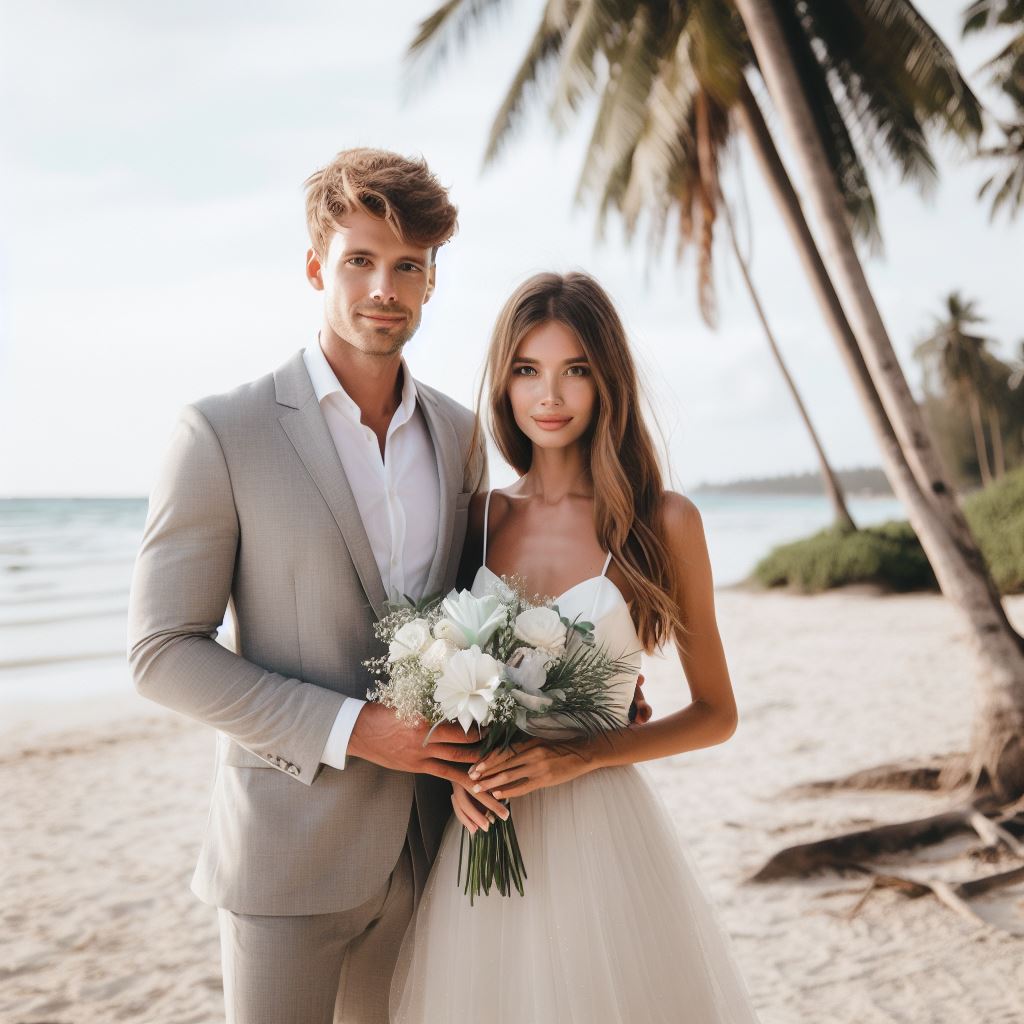
Wedding Venue and Decorations
A. Typical wedding venues preferred in Nigeria
In Nigeria, weddings are often held in open spaces or family compounds, reflecting the importance of community and cultural traditions.
The vast landscapes and warm climate make outdoor venues more popular.
B. Nigerian wedding decorations
Nigerian wedding decorations are known for their vibrant colors and intricate patterns, representing the rich cultural heritage and joyous celebrations.
In contrast, weddings in the US have a more simplistic and minimalist approach, often focusing on elegance and sophistication.
C. Differences in budgeting and expenses for wedding venues and decorations in both countries
- The budgeting and expenses for wedding venues and decorations differ significantly between Nigeria and the US.
- In Nigeria, families allocate a larger portion of their budget to venue rentals, catering, and decorations due to the importance placed on communal celebrations.
- In the US, couples tend to spend more on personal touches such as wedding attire, photography, and entertainment.
- The venues themselves may be less expensive, as many opt for traditional indoor venues like churches, hotels, or banquet halls.
- In Nigeria, couples often rely on family-owned compounds or open spaces, eliminating the need for significant venue expenses.
- The decorations, on the other hand, play a crucial role in expressing cultural heritage and are allocated a substantial portion of the budget.
- Meanwhile, in the US, decorations are often less elaborate, with a focus on creating a clean and modern aesthetic.
- This minimalist approach reduces the overall budget allocated for decorations, allowing couples to invest in other aspects of the wedding.
Overall, the differences in wedding venues and decorations between the US and Nigeria reflect the contrasting cultural values and priorities.
While Nigerians embrace the vibrancy and communal aspects of weddings, Americans lean towards a more personal and minimalist approach.
Read: Legal Pitfalls: Avoiding Scams & Fraudulent Marriage Forms
Wedding Attire and Fashion
A. Traditional Nigerian Wedding Attire
The traditional Nigerian wedding attire is known for its vibrant colors and intricate designs.
The bride typically wears a gele (headgear) made of shiny fabric, which symbolizes her royalty and beauty.
The groom, on the other hand, wears an agbada, a flowing robe that symbolizes his wealth and status.
B. Western-style White Wedding Dress
In contrast, the Western-style white wedding dress and tuxedo are commonly worn in the US.
The bride’s white dress represents purity and innocence, while the groom’s tuxedo exudes elegance and sophistication.
This attire is often seen as a symbol of unity and commitment.
C. Significance of Fashion and Attire in Nigerian Weddings
- Fashion and attire play a significant role in Nigerian weddings as they reflect the cultural heritage and traditions of the couple.
- The attire showcases the richness of Nigerian culture and serves as a statement of identity and pride.
- In Nigerian weddings, the bride’s gele holds great importance. It is not only a fashion accessory but also a symbol of her marital status and a way to display her family’s social standing.
- The bride’s parents usually take pride in presenting their daughter with an elaborate gele that matches the overall bridal ensemble.
- The groom’s agbada, on the other hand, is a reflection of his family’s prosperity. The embroidery, fabric, and embellishments used to create the agbada represent wealth and affluence.
- The groom’s attire often becomes a topic of discussion and admiration among the guests, as it symbolizes his readiness to be a provider for his new family.
D. Blending Nigerian and Western Fashion Elements
- In modern Nigerian-American wedding ceremonies, there is an emerging trend of incorporating both Nigerian and Western fashion elements.
- This fusion allows couples to honor their Nigerian roots while embracing the Western traditions they have grown up with.
- Many Nigerian-American brides now choose to wear both a traditional Nigerian dress for the traditional wedding ceremony and a white wedding dress for the Western-style ceremony.
- This dual attire showcases the bride’s connection to both cultures and creates a unique and memorable look.
- Similarly, grooms may opt to wear both an agbada and a tuxedo.
- This blend of Nigerian and Western fashion elements symbolizes the groom’s ability to navigate and embrace different cultures, creating a harmonious union of traditions.
- This blending of fashion elements also extends beyond the bride and groom.
- Guests attending Nigerian-American weddings often incorporate Nigerian fabrics and accessories into their Western-style outfits, paying homage to the couple’s heritage and adding a touch of cultural diversity to the celebration.
Basically, the attire and fashion choices in Nigerian and US weddings represent distinct cultural differences.
While the Nigerian attire showcases vibrant colors, intricate designs, and cultural significance, the Western-style wedding dress and tuxedo emphasize purity, elegance, and unity.
However, in modern Nigerian-American ceremonies, there is a growing trend of blending Nigerian and Western fashion elements to create a unique and harmonious celebration of love and cultural heritage.
Wedding Ceremonies and Rituals
A. Nigerian wedding customs
- Nigerian wedding ceremonies are known for their vibrant and extravagant customs.
- One such tradition is the “money spraying” ritual, in which guests shower the couple with money as a symbol of prosperity and good luck.
- This lively custom adds a festive and celebratory element to the wedding.
- Another distinctive aspect of Nigerian weddings is the exchange of wedding vows and blessings.
- Unlike in Western weddings, where couples exchange vows and rings, Nigerian couples usually engage in an elaborate ceremony led by a religious or traditional leader.
- These vows and blessings emphasize the commitment and union between the couple.
B. How Nigerian wedding ceremonies differ from the concise and structured nature of US weddings
- Nigerian wedding ceremonies are usually multi-day events that are rich in cultural significance.
- They often include various ceremonies and festivities, such as the engagement ceremony, traditional rites, and the grand reception.
- These celebrations can last for several days, showcasing the diverse traditions and customs of Nigeria.
- In contrast, US weddings tend to be more concise and structured. They typically consist of a ceremony followed by a reception.
- While there may be cultural or religious rituals incorporated into the ceremony, they are generally shorter in duration compared to Nigerian wedding ceremonies.
- US weddings often focus more on personalization and individual preferences.
C. Importance of religious rituals in both Nigerian and US wedding ceremonies
- Religious rituals play a significant role in both Nigerian and US wedding ceremonies, albeit with some variations.
- In Nigeria, religion holds great importance, and weddings are considered sacred events. The ceremony often takes place in a church or mosque, and religious customs are followed closely.
- In the US, religion may also play a crucial role in weddings, depending on the couple’s beliefs and traditions.
- Many couples choose to have their weddings officiated by religious leaders, such as priests, pastors, or rabbis.
- Religious rituals, such as prayers, blessings, and readings from religious texts, are often incorporated into the ceremony.
- However, it is worth noting that not all US weddings are religiously oriented.
- Increasingly, couples are opting for secular ceremonies that focus more on personal values and beliefs rather than adhering to specific religious traditions.
In short, Nigerian wedding ceremonies are characterized by unique customs like the “money spraying” tradition and the exchange of vows and blessings.
They are often multi-day affairs filled with music, dance, and cultural performances.
On the other hand, US weddings are typically more concise and structured, focusing on personalization.
Nonetheless, both Nigerian and US weddings place significance on religious rituals, though the level of religiosity may vary.
Discover More: Customizing Your Wedding Card: Tips and Tricks
Reception and Celebration
A. Comparing the cultural aspects of food and drink served at Nigerian and US wedding receptions
- Food and drink at Nigerian weddings are diverse and include traditional dishes like jollof rice, pounded yam, and egusi soup.
- In the US, there is a wide variety of cuisines served, often based on the couple’s preferences or the venue’s specialties.
B. Role of music, dance, and entertainment in both Nigerian and US celebrations
- In Nigerian weddings, music and dance are an integral part of the celebration, with live bands or DJs playing Nigerian music like highlife, Afrobeat, and juju.
- In the US, music choices may vary, but there is usually a dance floor and a mix of genres to cater to different tastes.
C. Differences in guest expectations, RSVP culture, and entertainment preferences in Nigerian and US wedding receptions.
- In Nigeria, weddings are often seen as community events, and guests may expect to be served a full meal and receive souvenirs.
- RSVP culture is not as prevalent, and guests may show up unannounced. In the US, guests are expected to RSVP, and meals are usually pre-determined based on responses.
- Entertainment preferences may also differ, with Nigerians enjoying more cultural dances and US guests favoring popular hits and current trends.
Explore Further: Marriage Counselling: Success Stories from Abuja
Conclusion
A. Summary of the main points discussed in the blog post
This blog post has highlighted the key differences between US and Nigerian wedding ceremonies.
From the attire to the rituals, both cultures have unique traditions that contribute to the beauty of these weddings.
B. Final thought or reflection on the beauty of the diversity and cultural exchange between Nigerian and US weddings.
It is truly remarkable how diverse and rich wedding traditions can be, especially when comparing Nigerian and US ceremonies.
The cultural exchange that takes place during these weddings is a testament to the beauty of diversity.
C. Encouraging readers to appreciate and learn from different wedding traditions, embracing the similarities and celebrating the differences
- As readers, it is important for us to appreciate and learn from different wedding traditions.
- By embracing the similarities and celebrating the differences, we can deepen our understanding of other cultures and foster a sense of unity among diverse communities.
- Let us cherish the beauty that lies in these wedding ceremonies from all around the world.

